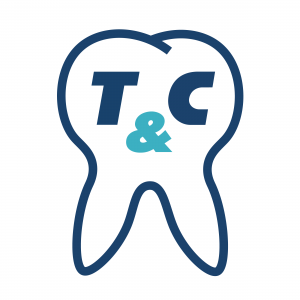If you have ever taken an intro to human biology class, you probably understand that saliva is important for the first part of digestion and breaking down carbohydrates. But saliva has so many more functions and is even more important to your health than that little tidbit.
- Protection Against Cavities:
- Saliva can interfere with the adhesion of bad bacteria that accumulate on your teeth. The bad bacteria forms a layer of plaque on your teeth and they secrete acids after munching on carbohydrates. Saliva is capable of washing small amounts of this bacteria, and acid away1. There are also at least 24 components of saliva that have direct or indirect antimicrobial activity2. We know that enamel of human teeth begins to demineralize and breakdown at a pH level of around 5.5. It is also known that the oral cavity drops down from its normal pH range of 6.2-7.6 when we ingest acidic food or drinks like soda. Saliva has multiple different ways of buffering the pH drop with components such as bicarbonates and phosphates1. This helps to fend off the acid attacks from bacteria and sugary foods that demineralizes enamel. Teeth are also bathed in calcium and fluoride ions that saliva transports into the mouth which helps with remineralization after small acidic attacks3,4.
- Taste and Eating:
- As mentioned before, saliva plays a huge role in digestion. Saliva’s lubricating qualities helps to allow the food bolus’ to travel safely down the esophagus1. The unique qualities that saliva has also gives us an enhanced sense of taste. Not only that, but saliva also begins the digestion process for fats and carbohydrates5.
- Protection:
- Without saliva, the tissues of the oral cavity would become desiccated. This would certainly be irritating during meal times5. For denture patients, a denture rubbing on dry tissues can result in very uncomfortable ulceration and sore spots.
The information provided in this post barely scratches the surface of how important saliva is. It is also beneficial to understand that there are many ways our saliva production can be affected e.g. cancer treatments and many different pharmaceuticals. If you have any questions about saliva, the resources below are great sources of information. If you’re noticing a decrease in the amount of saliva you are producing, consult your dentist.
- Mandel I. D. (1989). The role of saliva in maintaining oral homeostasis. Journal of the American Dental Association (1939), 119(2), 298–304. https://doi.org/10.14219/jada.archive.1989.0211
- Marsh, P. D., Do, T., Beighton, D., & Devine, D. A. (2016). Influence of saliva on the oral microbiota. Periodontology 2000, 70(1), 80–92. https://doi.org/10.1111/prd.12098
- Wöltgens, J. H., Bervoets, T. J., Witjes, F., & Driessens, F. C. (1981). Effect of post-eruptive age on Ca and P loss from human enamel during demineralization in vitro. Archives of oral biology, 26(9), 721–725. https://doi.org/10.1016/0003-9969(81)90189-8
- SHAW, J. H., & WOLLMAN, D. H. (1958). The influence of sialoadenectomy in rats on food and water consumption. Journal of dental research, 37(5), 805–810. https://doi.org/10.1177/00220345580370050601
- Mandel I. D. (1987). The functions of saliva. Journal of dental research, 66 Spec No, 623–627. https://doi.org/10.1177/00220345870660S203
The Author of this post does not assume any liability for any injury and/or damage to persons or property as a matter of products liability, malpractice, negligence, or otherwise, or from any use or operation of any methods, instructions or ideas contained. The foregoing parties will not be liable for any direct, special, indirect, incidental, consequential, or punitive damages as a result of the reader’s use of this information.

